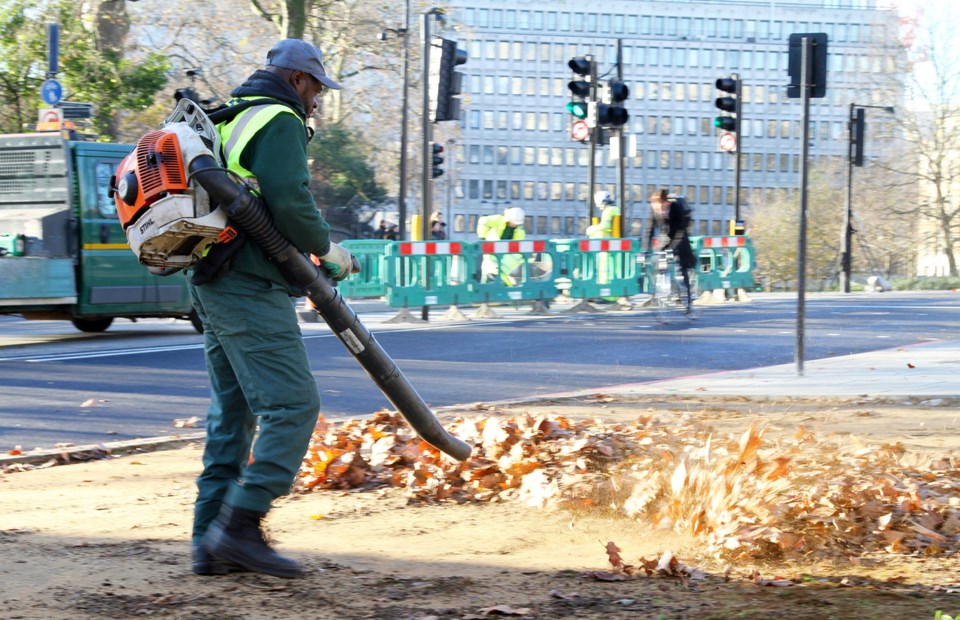Vancouver’s park board will start looking into greening its fleet of landscaping equipment.
Park board commissioners Monday night approved a motion directing staff to, in consultation with unions and WorkSafeBC, develop a plan to replace and retrofit its gas-powered landscape maintenance equipment with emission-free equivalents.
The motion was brought forward by Green commissioner Dave Demers.
“It’s no secret that I’m a landscaper by trade. I’ve done this all of my life,” he said. “As a company owner [who] started this transition three years ago I would never go back.”
He said that he knew that using the gas-powered equipment was bad for the environment but didn’t know how bad it was until he started looking into it more.
“Gas-powered outdoor equipment such as lawn mowers, leaf blowers and hedge trimmers are some of the worst polluters out there,” Demers previously told the Courier.
“The pollution is terrible for our environment but also poses serious health risks to our park staff,” he said last week. “It’s completely unnecessary and Vancouver deserves better.”
Commissioner Camil Dumont, who is a former park board employee, said he has experience spending an entire shift working with a leaf blower.
“It’s a real hard day.”
Demers said that while battery-operated or electric equipment typically costs between 20 and 40 per cent more than the gas-powered counterparts, ongoing operating and maintenance costs are much lower, adding that within two or three years the equipment pays for itself.
Commissioner John Coupar, who is president of a courier company that made the switch to using electric, hybrid and ultra-low emission vehicles, said the benefits outweigh the costs.
“It’s a lot of infrastructure and a lot of cost around it but I think it’s worth it.”
Demers’s motion, with several amendments, received unanimous support from his fellow commissioners and also appears to have struck a chord with residents. As of Monday afternoon the park board had received 135 emails in support of the motion, and one that suggested switching to using rakes and push mowers.
The consideration of Monday’s motion coincided with commissioners receiving a report from the University of B.C.’s Greenest City Scholars program. The program was established in 2010 in collaboration with the City of Vancouver to sponsor UBC grad students to work on sustainability projects supporting the city’s Greenest City 2020 Action Plan, which aims to reduce greenhouse gas emissions from city operations by 50 per of 2007 levels.
The report only looked at the park board’s fleet of small gas-powered equipment — leaf blowers, line and hedge trimmers, and chainsaws — and did not consider the larger pieces of equipment. However it found that those machines alone consume on average about 96,000 litres of fuel a year and produce almost 600 tons of carbon dioxide equivalents, which is the equivalent to the total carbon dioxide emissions for 230 cars.
The report went on to say that, taking battery production and recycling into consideration, greenhouse gas emissions from the battery-operated machines is less than two percent of what is produced by gas-powered equipment.
“The electric equipment proved to be an excellent option to invest to reduce carbon intensity, noise level and heath effect of the operators exposed directly to the gas exhaust,” the report reads.
@JessicaEKerr
jkerr@vancourier.com



